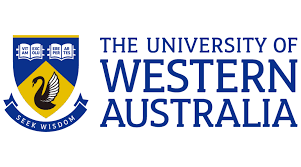University of Western Australia: Review urges rethink of mandatory meth treatment programs
Mandatory treatment programs for methamphetamine users have limited, if any, success, according to researchers at The University of Western Australia.
Associate Professor Mathew Coleman, from The Rural Clinical School of Western Australia, said despite growing community enthusiasm for mandatory drug treatment programs, there were significant clinical and ethical challenges associated with these treatment programs.
“These include determining the decision-making capacity of people with substance use disorders, the impact of self-determination and motivation in drug treatment, current treatment effectiveness, cost effectiveness and unintended treatment harms associated with mandatory programs,” he said.
“Although there was a popular public perception that meth was the drug responsible for most deaths in Australia, this was at odds with clear evidence that alcohol and tobacco were the leading causes of drug-related harm in Australia and worldwide.”
Associate Professor Mathew Coleman
Although there was a popular public perception that meth was the drug responsible for most deaths in Australia, this was at odds with clear evidence that alcohol and tobacco were the leading causes of drug-related harm in Australia and worldwide, Associate Professor Coleman said.
However, this misconception had led to increasing pressure on government policy-makers to respond amid calls for mandatory drug treatment.
“The current pressure to revisit mandatory treatment in response to changing community attitudes carries a number of potential risks,” he said.
“These include the implementation of treatment models that are poorly evidence-based, may not provide the outcomes desired, nor support those most in need and are not cost-effective. There’s also the risk they may divert limited resources away from more stablished, effective, accessible and voluntary interventions.”
Associate Professor Coleman is the lead author of a paper published in Substance Abuse Treatment, Prevention, and Policy, which reviews mandatory treatment and the evidence of its effectiveness as well as examining the complex issues linked to mandatory drug treatment in the context of methamphetamine use in Australia.
He concludes access to treatment, motivation to engage, duration and acceptability of interventions are important contributors to any mandatory treatment programs.
Associate Professor Coleman said mandatory treatment usually involved involuntary or compulsory treatment where the individual had no say; and coerced treatment where individuals had to choose between drug treatment or an alternative such as legal sanction or a criminal justice penalty.
“The challenges for legislators, clinicians and service providers when considering mandatory treatment for drug use disorders, particularly methamphetamine, is to proportionately balance the issue of human rights with the effectiveness, safety and accessibility of both existing and new mandatory treatment approaches,” he said.
“Coercion-based criminal justice programs currently provide small and possibly cost-effective options for mandatory treatment while involuntary treatment is unlikely to be a viable response to increasing alarm and concern in Australia around methamphetamine use.”

